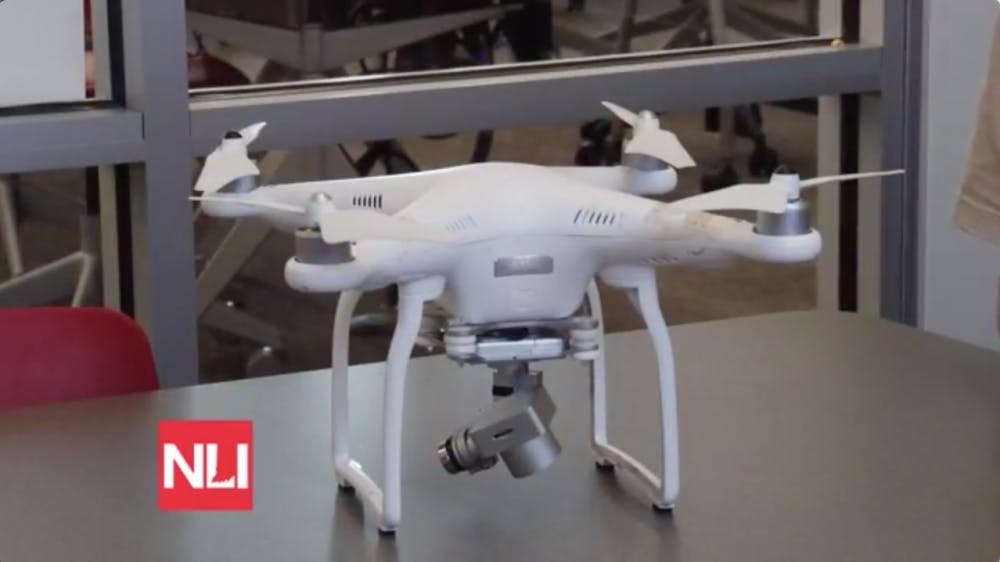A policy issued by the university on Nov. 29 might break the Federal Aviation Administration regulation.
In the procedures section of the policy, it says that drone operators must request approval from the Ball State Office of Risk Management (ORC) to fly 14 days in advanced of a flight. The policy also states that operators must have a operators badge, which will be issued by the ORC. It is these two sections that are raising the biggest flags among experts familiar with the policy.
Experts familiar with Ball State’s policy says the policy violates FAA regulation because of the first point under the procedure section. Chad Budreau, Public Relations and Government Affairs Director of the Academy of Model Aeronautics says that congress says that the FAA has exclusive authority over the airspace. Ball State is also not authorized to require a permitting process, according to Budreau.
“Right now as the law stands, they do not have the authority to regulate what goes on in the airspace,” says Budreau. “Now that doesn’t mean they cant protect the people ,and property on the ground; theyhave plenty of tools to do that. When it comes to regulating what goes on in the airspace, that authority is just not afforded to them yet.”
In an email to Kim Miller, Director of the Ball State Office of Risk Management, Tyler Dobbs, Government Affairs and Public Relations Representative from the Academy of Model Aeronautics, it says “The BSU drone policy has a number of operational restrictions (altitude, weight, etc.) that run counter to this FAA guidance, and could be open to a preemption defense in the future.”
One of the main concerns about the policy is applying for a permit to fly on campus 14 days in advance.
“That [part of the policy] alone has multiple issues,” says Budreau, “For one, even recent court cases, from a couple of months ago. have overturned cities that have a very similar policy.”
You can find the policy here.
Contact Tanner Holbrook with comments at trholbrook@bsu.edu or on Twitter at @Tanner_Holbrook.












